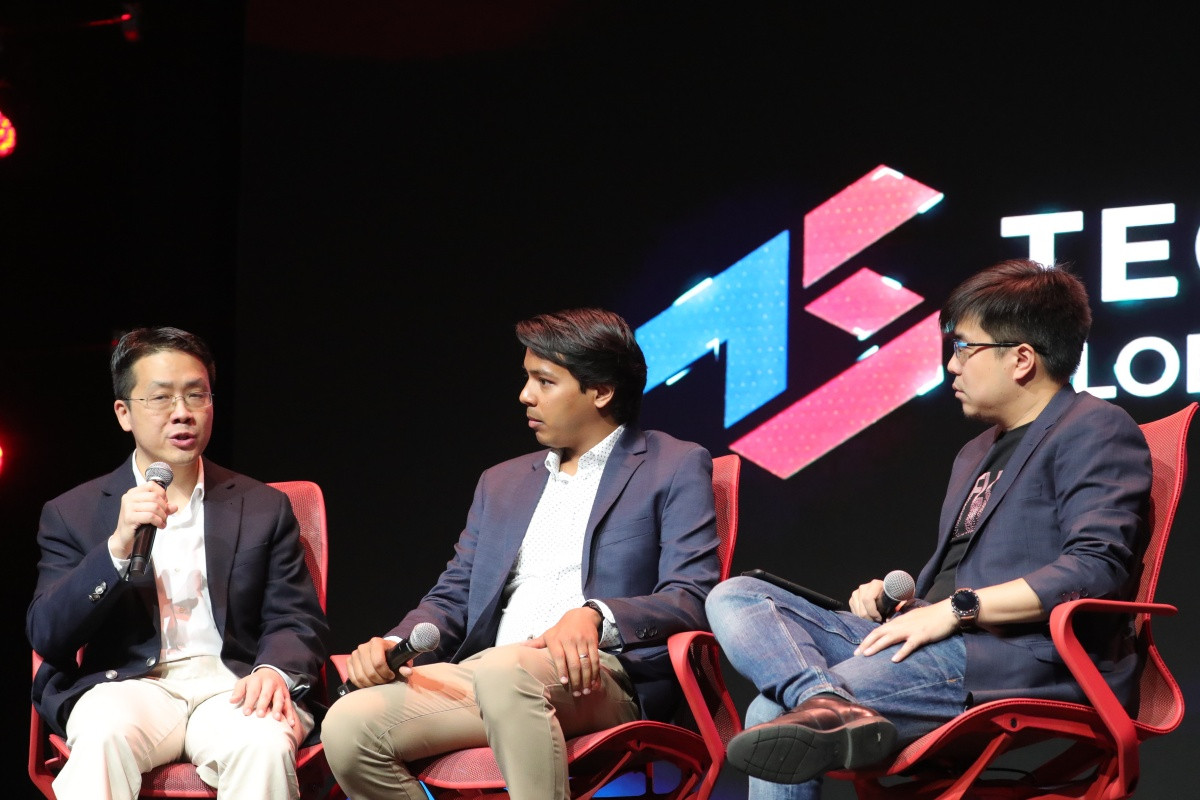The Race of Superpowers: US Versus China

An Uncertain Future
Riddhiman Das, Builder and Investor at Ant Financial (Alibaba), started off the discussions by addressing the ongoing trade war between the US and China, stating that the unclear policy is creating a great deal of uncertainty. Expressing his view that though the situation will continue, he is optimistic that there will emerge a clearer path in the future.
On the other hand, Joe Chang, Partner at 8 Roads said the uncertainties also provide challenges to overcome. As venture capitalists are in for the long term, he is confident that the trade war between the two nations will instead accelerate innovation and prove to be a good opportunity for investors.
The Power of Data
The panelists also discussed the significance of 5G, with both agreeing 5G will certainly bring about new use cases and innovation.
According to Riddhiman, new use cases for technologies such as the internet of things (IoT) will be made possible with 5G, such as applying IoT to bring the online retail experience to users offline, where all devices need to be connected.

China’s Strengths: The Workforce
Riddhiman also opined that China is a contender to leading the tech industry in every category, mainly with the country’s talented and hardworking workforce.
Meanwhile, Joe said due to the huge amount of data gathered in China, algorithms tend to work better, for example, autonomous vehicles tested in Guangzhou, China, would be able to deal with obstacles much better than those tested in Fremont, California, due to the higher number of traffic on the road accounting for a richer data pool.

Another area that Chinese companies are leading is facial biometrics, with Riddhiman saying that Chinese firms were the only nation successful in training their program to recognize facial biometrics due to the large amount of data generated by Chinese consumers.
Opportunities for a Southeast Asian Expansion
According to Joe, the natural first step for expansion for Chinese companies is the Southeast Asia region, given that the culture is more similar to the Chinese compared to Western countries, and customers would gravitate towards a superior technology and experience that is on offer.
Riddhiman, however, said a key challenge to expansion is the ability to adapt the technology to the local population, as seen in the introduction of WeChat and Whatsapp to the Indian market. The difference between these messaging apps in the market was that WeChat users took a long time to send media over the app, while Whatsapp tailored its technology to fit the Indian population by compressing files first, allowing media to be sent at a faster speed than its competitor.

An Investors’ Point of View
The investors then shared some crucial deciding factors when investing in a startup. Riddhiman said that he often focuses on the strategic perspective of the company, while putting an emphasis on the readiness and innovativeness of the team.
Meanwhile, Joe revealed that the most important thing is the people in the team itself. Anybody can have the greatest idea in the world, however, it would take a team that is resilient and has the capability to pivot and adapt to the changes in the market to make the original business plan become a reality.
This article is written by Ms. Pimsirinuch Borsub, editor of Techsauce Global Summit 2019.
ลงทะเบียนเข้าสู่ระบบ เพื่ออ่านบทความฟรีไม่จำกัด






